A New World: Exploring the Concept of Fortnite Chapter 3’s Map
Related Articles: A New World: Exploring the Concept of Fortnite Chapter 3’s Map
Introduction
In this auspicious occasion, we are delighted to delve into the intriguing topic related to A New World: Exploring the Concept of Fortnite Chapter 3’s Map. Let’s weave interesting information and offer fresh perspectives to the readers.
Table of Content
A New World: Exploring the Concept of Fortnite Chapter 3’s Map
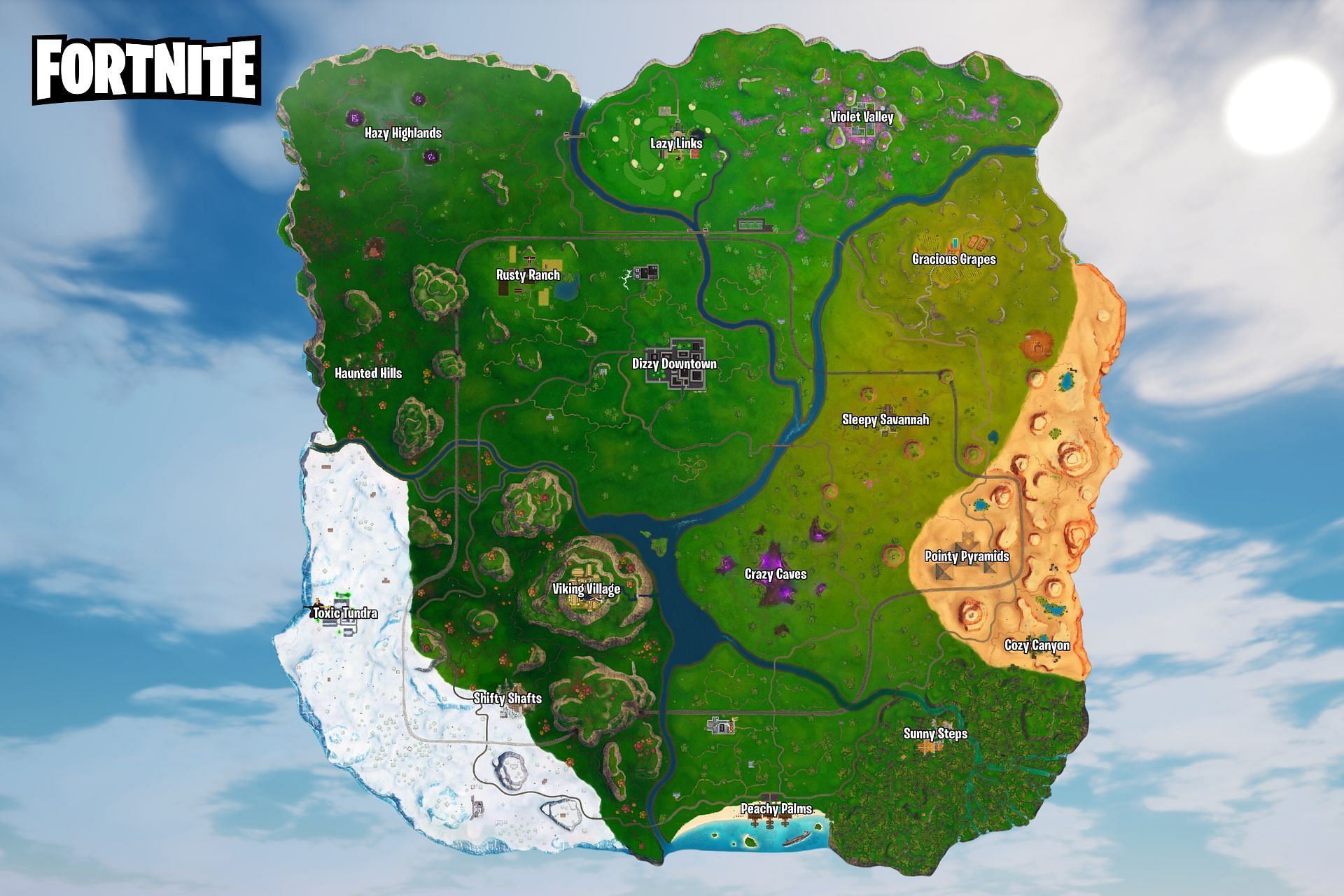
Fortnite Chapter 3 ushered in a significant shift in the game’s landscape, introducing a brand-new map that significantly diverged from its predecessors. This new environment, dubbed "Chapter 3 Island," presented a unique set of challenges and opportunities, transforming the gameplay experience in compelling ways. The map’s design, featuring a diverse range of biomes, dynamic elements, and strategic locations, is a testament to the ongoing evolution of Fortnite’s world.
A Tapestry of Biomes:
The Chapter 3 map showcased a diverse range of biomes, each offering unique terrain, challenges, and strategic advantages. The central area, a large island, featured a mixture of environments:
-
Snowy Mountains: The towering peaks offered strategic high ground, providing a vantage point for sniping and observing the battlefield. The icy terrain also presented unique challenges, such as navigating slippery slopes and managing the effects of cold weather.
-
Tropical Beaches: Lush beaches offered a contrast to the mountainous terrain, with open spaces ideal for close-quarters combat and flanking maneuvers. The presence of water provided opportunities for aquatic traversal and strategic retreats.
-
Dense Forests: The dense forests provided cover and concealment, allowing for ambushes and strategic positioning. The varied terrain within the forests created opportunities for flanking maneuvers and unpredictable engagements.
-
Desert Regions: The arid desert landscape presented a distinct challenge, with open terrain and limited cover. The scarcity of resources and the threat of sandstorms added another layer of complexity to gameplay.
Dynamic Elements and Shifting Landscapes:
Beyond the static biomes, the Chapter 3 map incorporated dynamic elements that constantly reshaped the landscape, creating a dynamic and unpredictable environment. These elements included:
-
The Daily Bugle: This landmark, inspired by the iconic Marvel Comics, served as a central hub for players, offering a variety of challenges and rewards. It also served as a focal point for intense combat, drawing players to its vicinity.
-
The Reality Tree: A colossal tree located in the center of the map, the Reality Tree wielded immense power, capable of manipulating the surrounding environment and altering the flow of battle. Its presence added a layer of uncertainty to the game, as its effects could be both beneficial and detrimental depending on the situation.
-
The Tilted Towers: This iconic location, revived from previous chapters, became a symbol of intense competition and a hotbed of action. Its towering structures provided strategic advantages, while its central location made it a prime target for players.
Strategic Locations and Opportunities:
The Chapter 3 map was carefully designed to offer a variety of strategic locations, each with its own unique strengths and weaknesses. These locations included:
-
The Sanctuary: This area, located on the outskirts of the map, served as a hub for the Seven, a mysterious faction dedicated to protecting the island. The Sanctuary offered a safe haven for players and provided access to unique quests and rewards.
-
The Joneses: This area, named after the iconic Jonesy character, featured a variety of locations, including a bustling town and a sprawling farm. The Joneses offered a mix of close-quarters combat and open-field engagements, catering to diverse playstyles.
-
The Daily Bugle: As mentioned previously, the Daily Bugle served as a central hub for players, offering a variety of challenges and rewards. Its presence on the map attracted a large number of players, creating opportunities for intense combat and strategic maneuvering.
The Importance of the Chapter 3 Map:
The Chapter 3 map, with its diverse biomes, dynamic elements, and strategic locations, played a pivotal role in shaping the game’s gameplay experience. Its introduction marked a significant departure from previous chapters, offering a fresh and exciting environment for players to explore. The map’s design encouraged a variety of playstyles, from aggressive assaults to strategic positioning, and offered a plethora of opportunities for players to showcase their skills.
FAQs about the Chapter 3 Map:
Q: What are some of the key differences between the Chapter 3 map and previous maps?
A: The Chapter 3 map introduced a number of key differences, including:
- Diverse Biomes: The map featured a wider range of biomes, offering a more varied gameplay experience.
- Dynamic Elements: The map included dynamic elements such as the Reality Tree and the Daily Bugle, which constantly reshaped the landscape.
- Strategic Locations: The map offered a variety of strategic locations, each with its own unique strengths and weaknesses.
Q: What are some of the best places to land on the Chapter 3 map?
A: The best landing spots on the Chapter 3 map depend on individual playstyles and preferences. However, some popular choices include:
- The Daily Bugle: This location is a hotbed of action, offering opportunities for intense combat and strategic maneuvering.
- The Sanctuary: This area provides a safe haven for players and offers access to unique quests and rewards.
- The Tilted Towers: This iconic location is a symbol of intense competition and offers a variety of strategic advantages.
Q: How does the Chapter 3 map affect the game’s overall gameplay experience?
A: The Chapter 3 map significantly impacted the game’s overall gameplay experience by:
- Encouraging Diverse Playstyles: The map’s design encouraged a variety of playstyles, from aggressive assaults to strategic positioning.
- Offering New Challenges and Opportunities: The map introduced new challenges and opportunities for players to explore.
- Creating a Dynamic and Unpredictable Environment: The map’s dynamic elements and strategic locations created a dynamic and unpredictable environment.
Tips for Mastering the Chapter 3 Map:
- Explore the Biomes: Familiarize yourself with the different biomes and their unique characteristics.
- Utilize Strategic Locations: Take advantage of the strategic locations on the map, such as the Daily Bugle and the Sanctuary.
- Adapt to Dynamic Elements: Be aware of the dynamic elements on the map, such as the Reality Tree and the Tilted Towers, and adapt your strategies accordingly.
- Master the Terrain: Learn the terrain of the map and use it to your advantage.
- Utilize Vehicles: Take advantage of the various vehicles available on the map, such as cars and ATVs, to navigate the terrain quickly and efficiently.
Conclusion:
The Chapter 3 map represented a significant evolution in Fortnite’s gameplay experience. Its diverse biomes, dynamic elements, and strategic locations provided a fresh and exciting environment for players to explore. The map’s design encouraged a variety of playstyles and offered a plethora of opportunities for players to showcase their skills. The Chapter 3 map served as a testament to the ongoing evolution of Fortnite, demonstrating the game’s ability to constantly innovate and surprise its players.
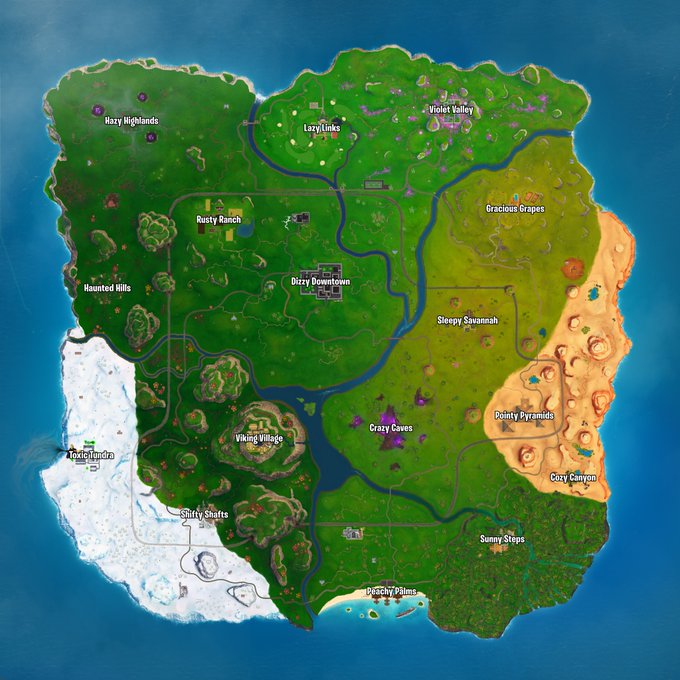
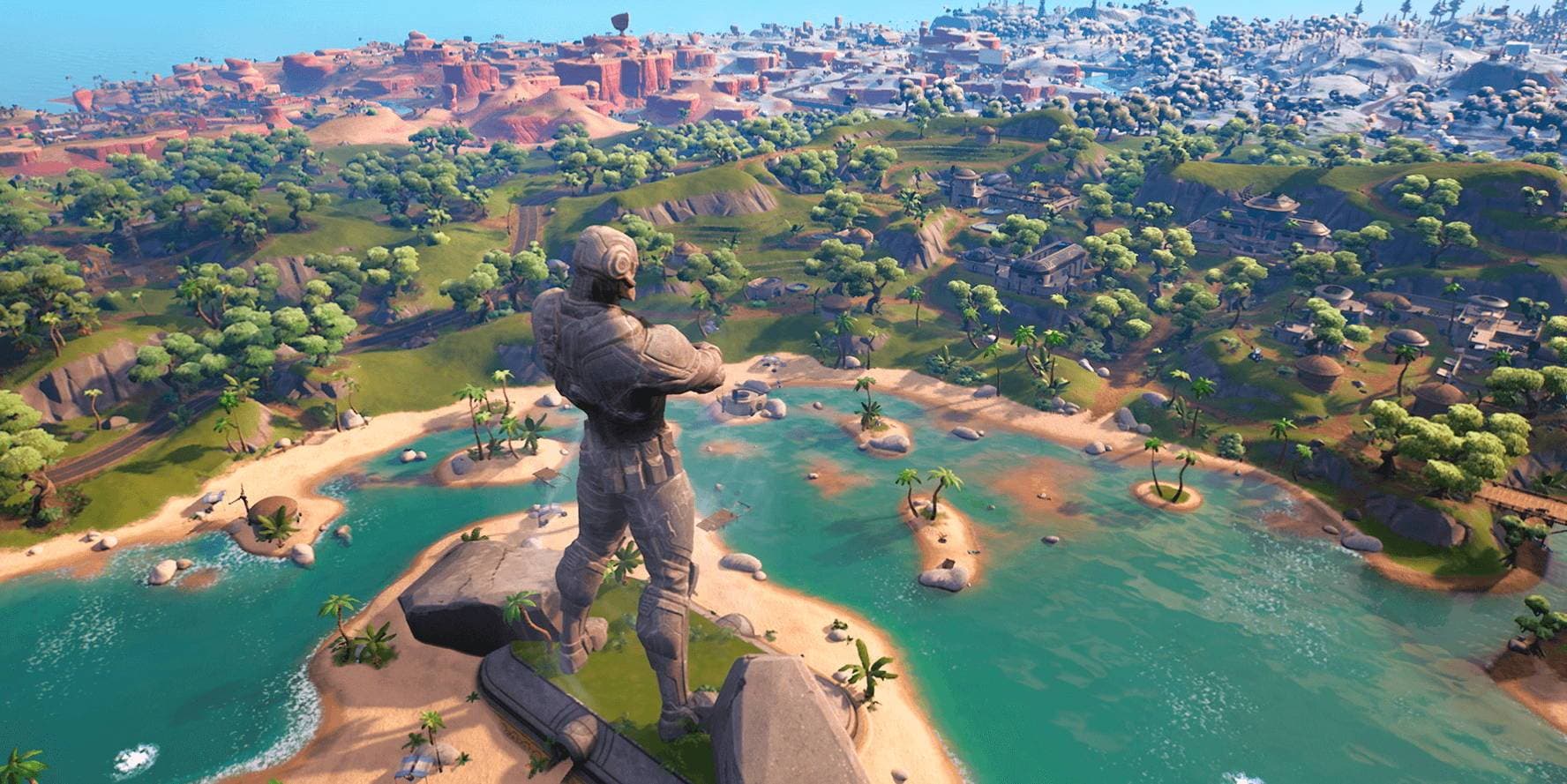

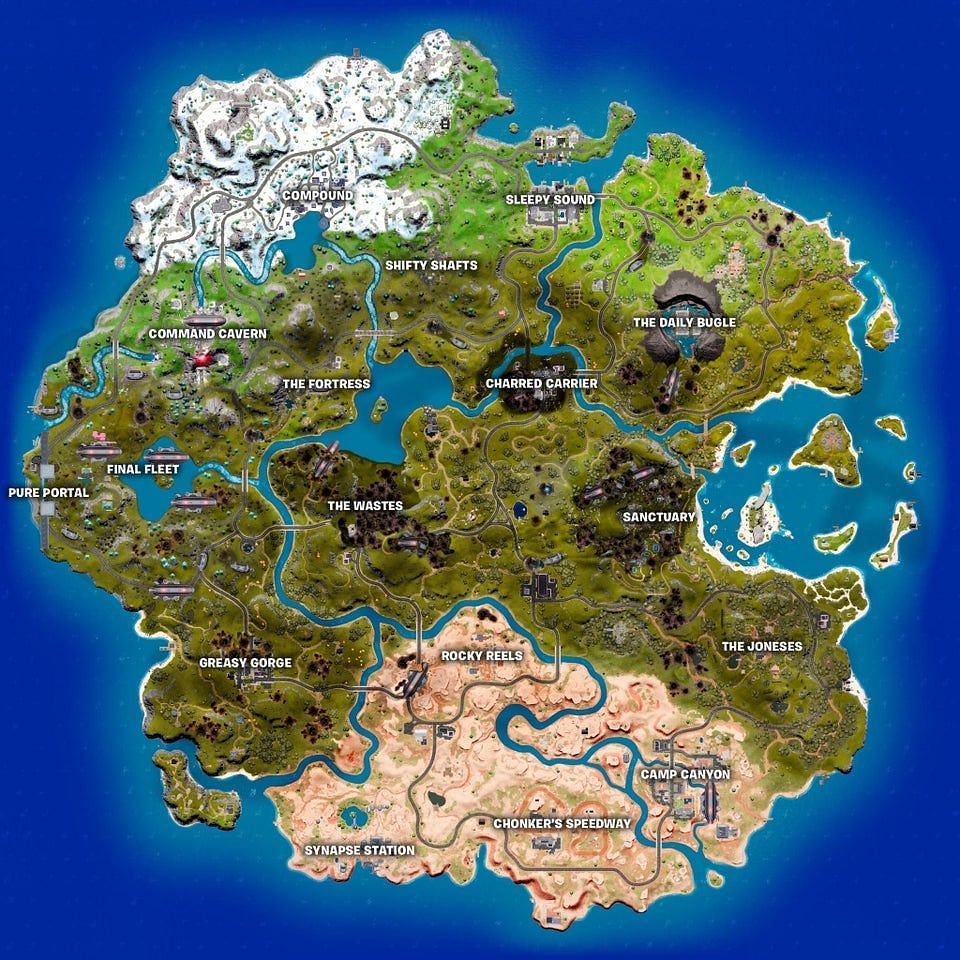


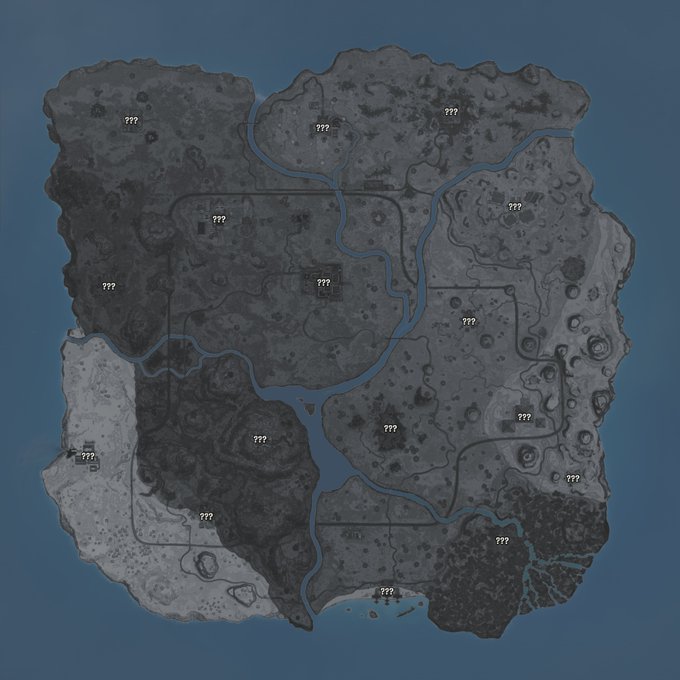
Closure
Thus, we hope this article has provided valuable insights into A New World: Exploring the Concept of Fortnite Chapter 3’s Map. We thank you for taking the time to read this article. See you in our next article!